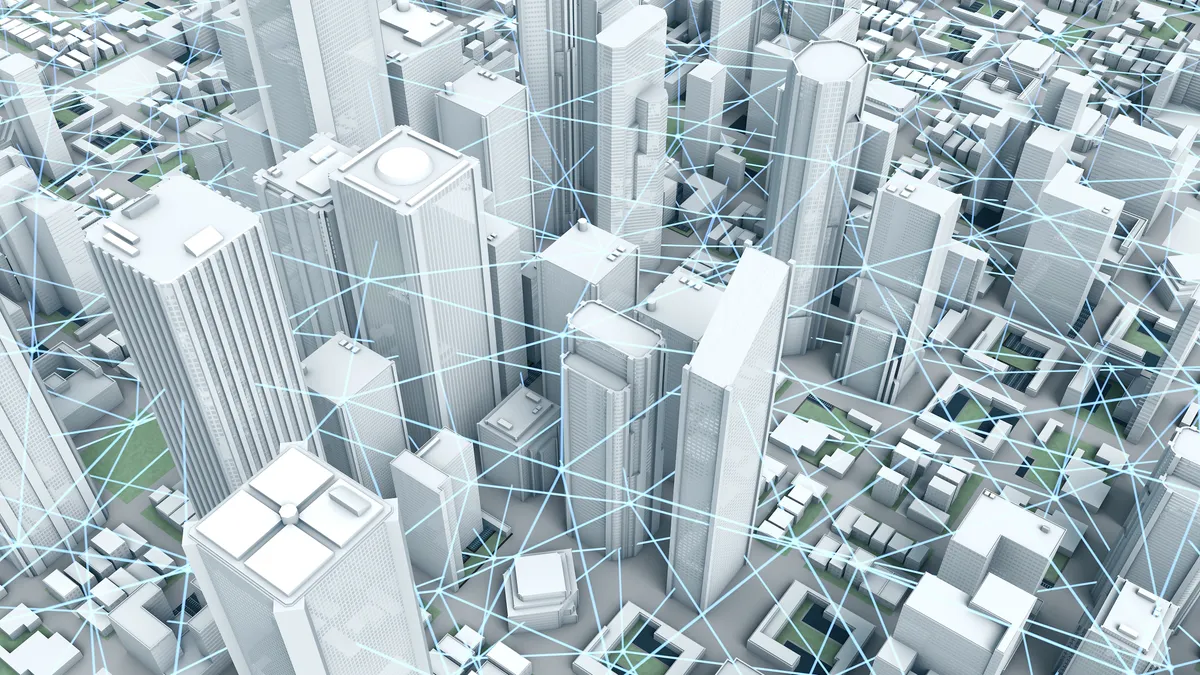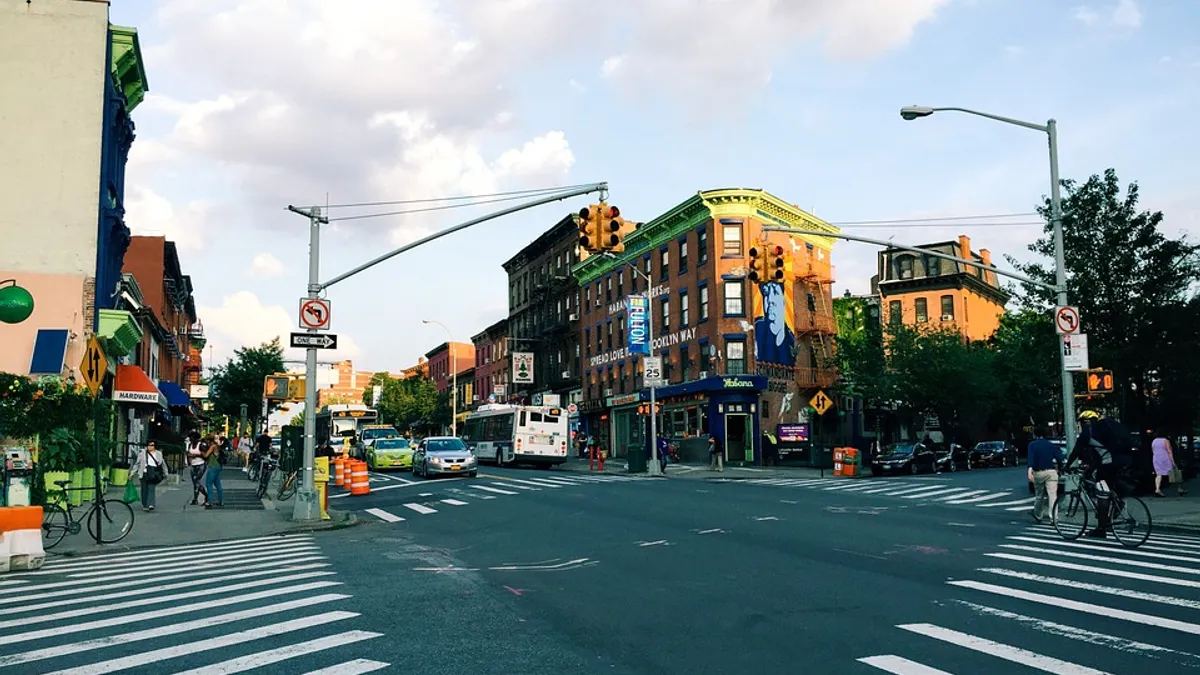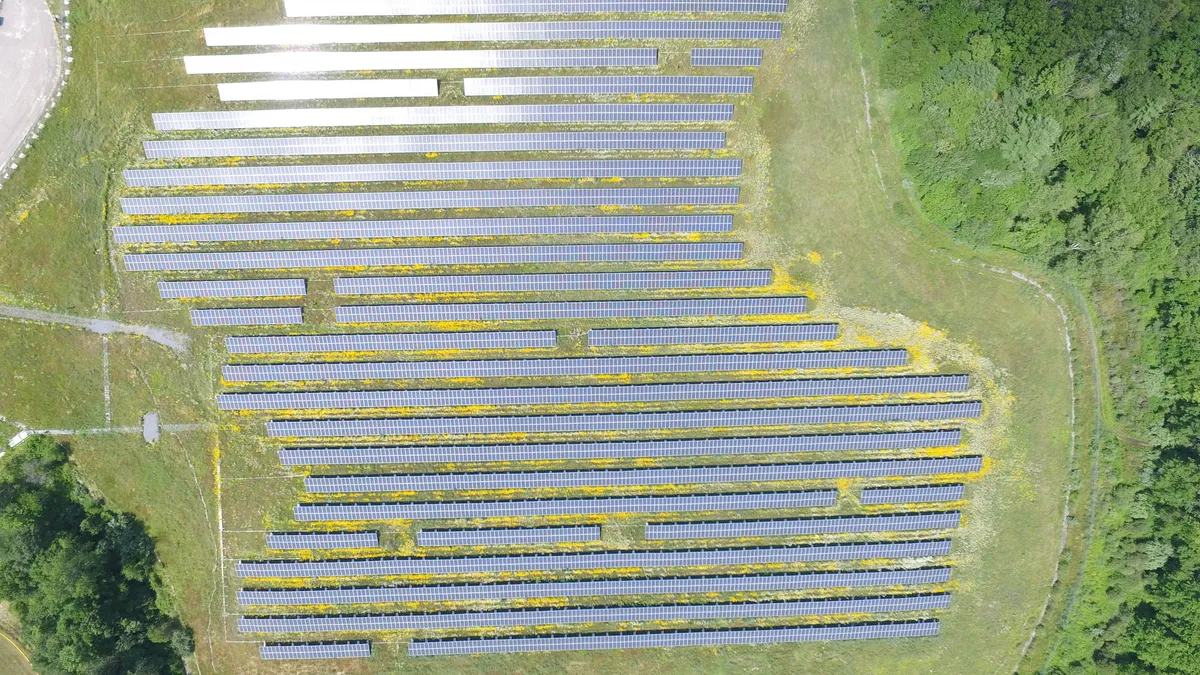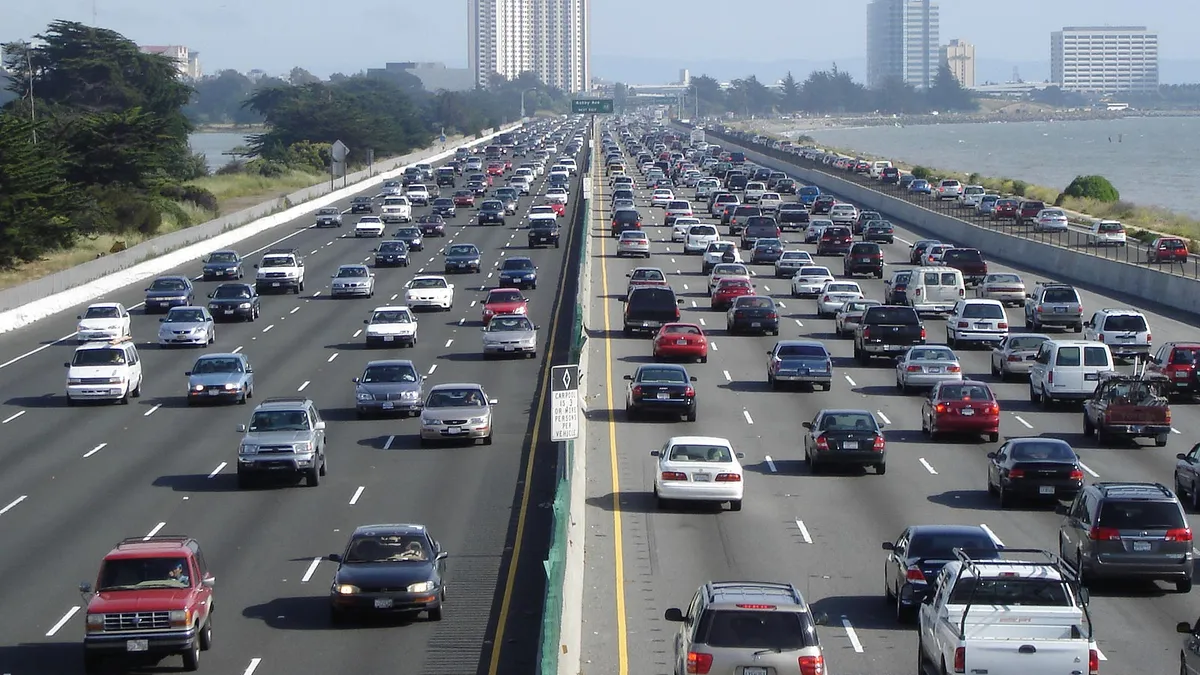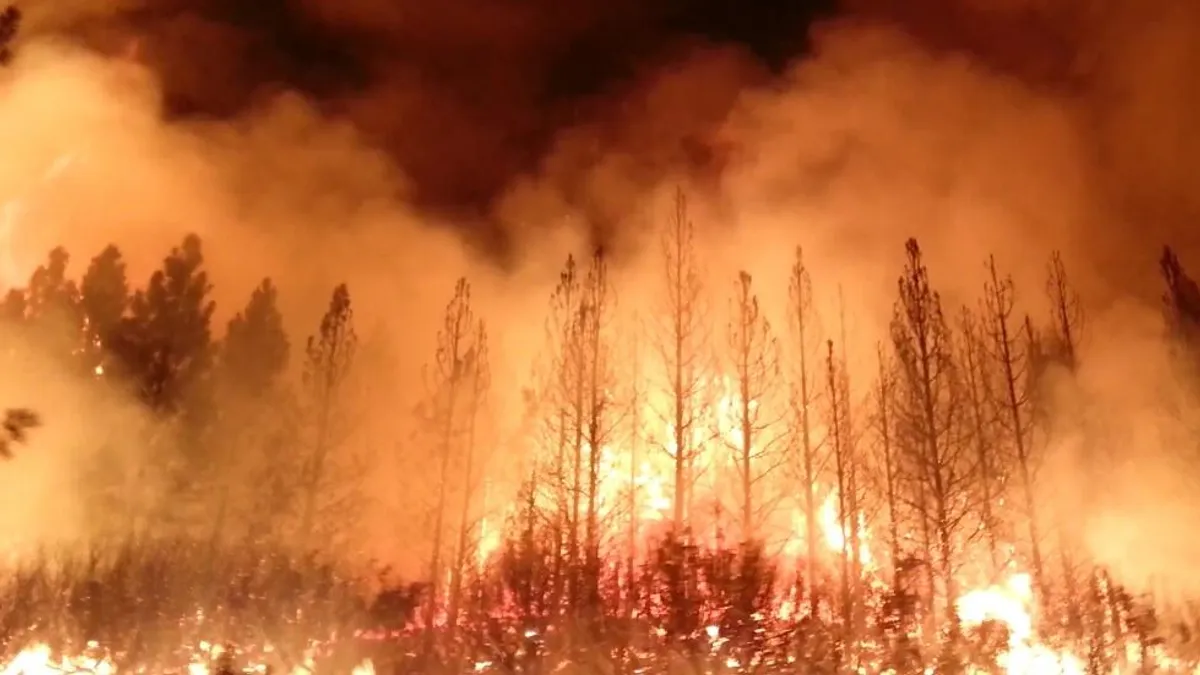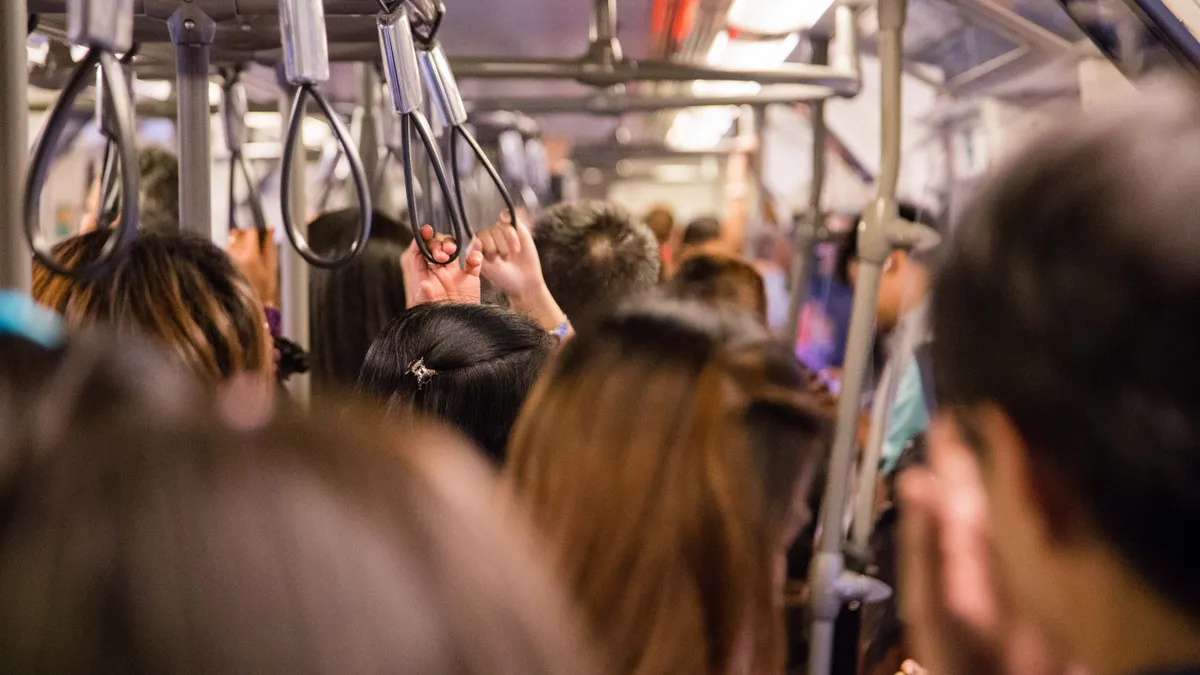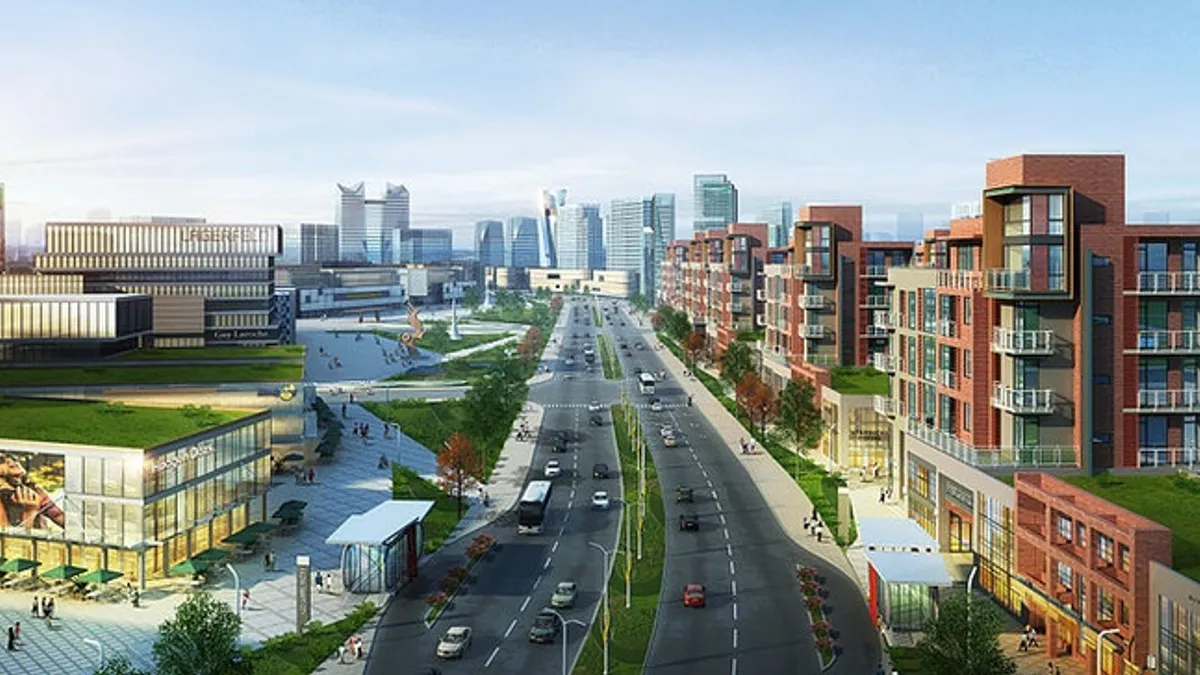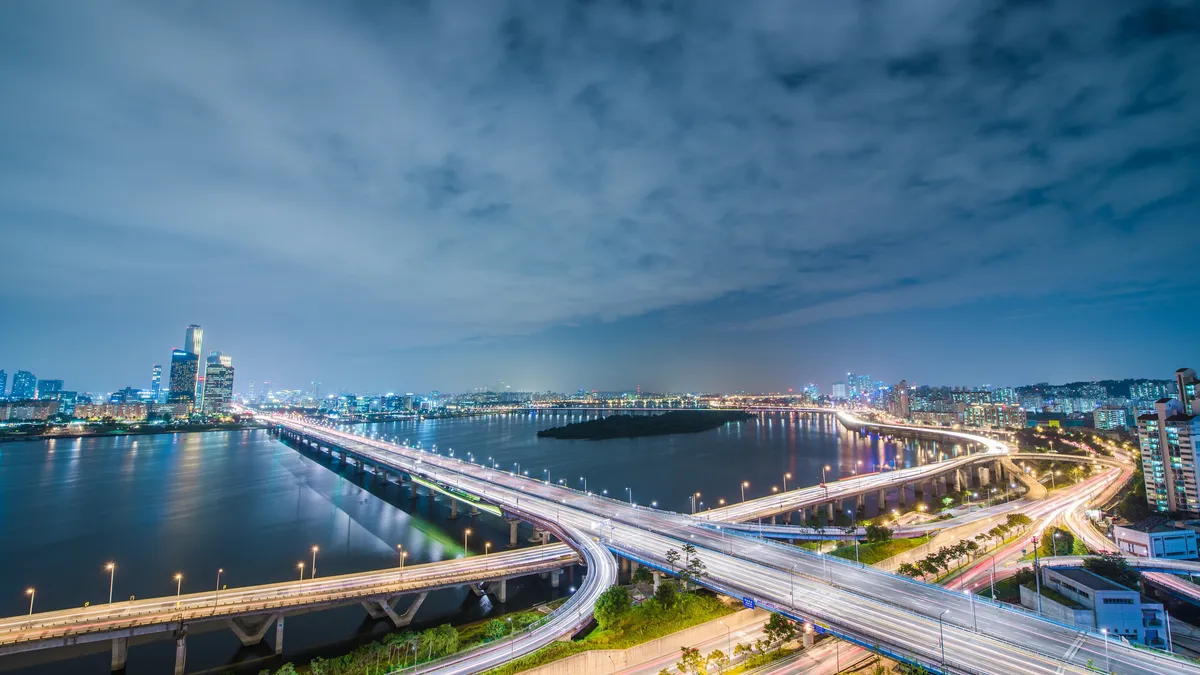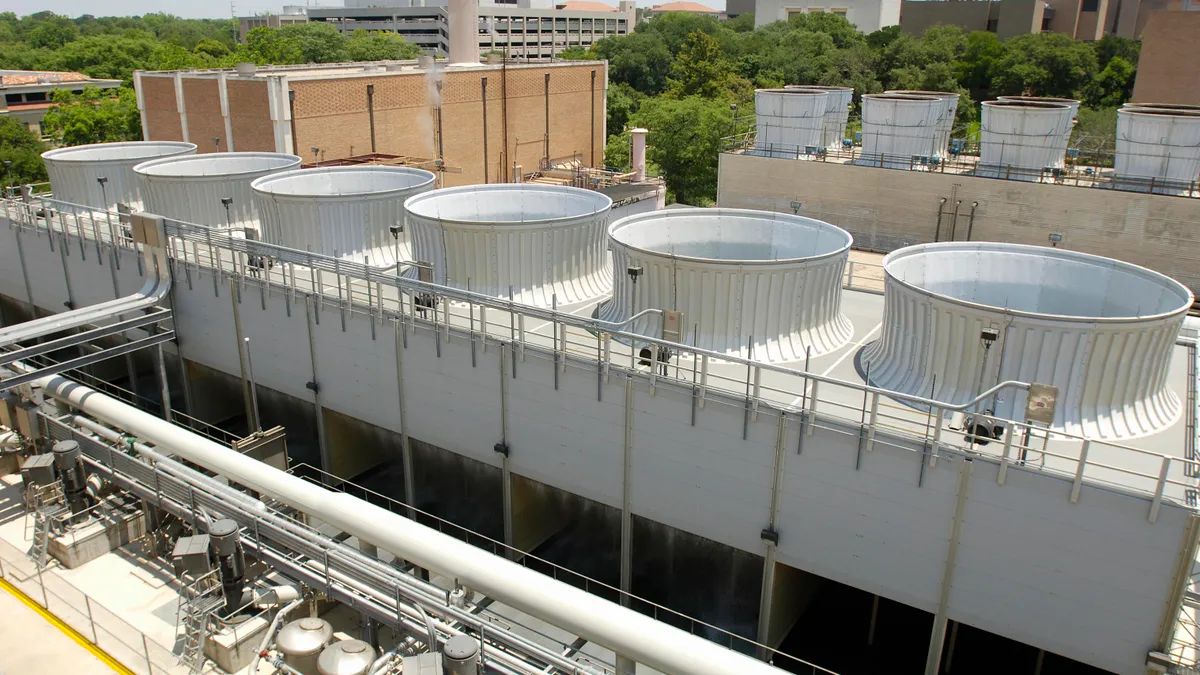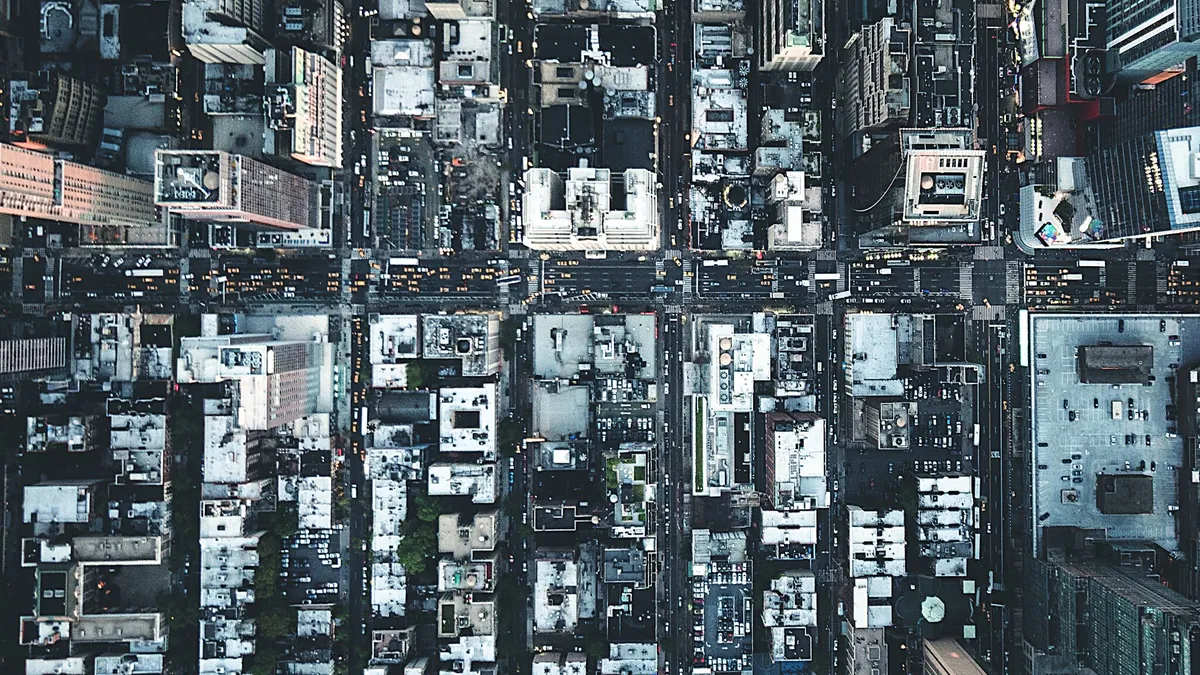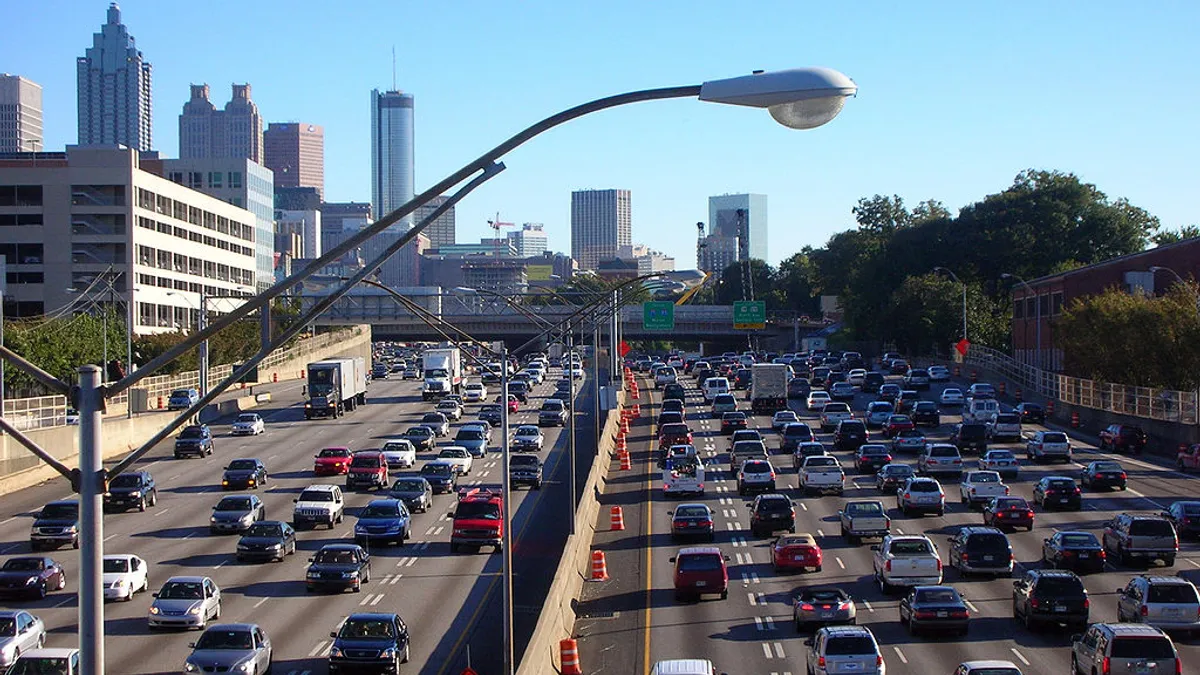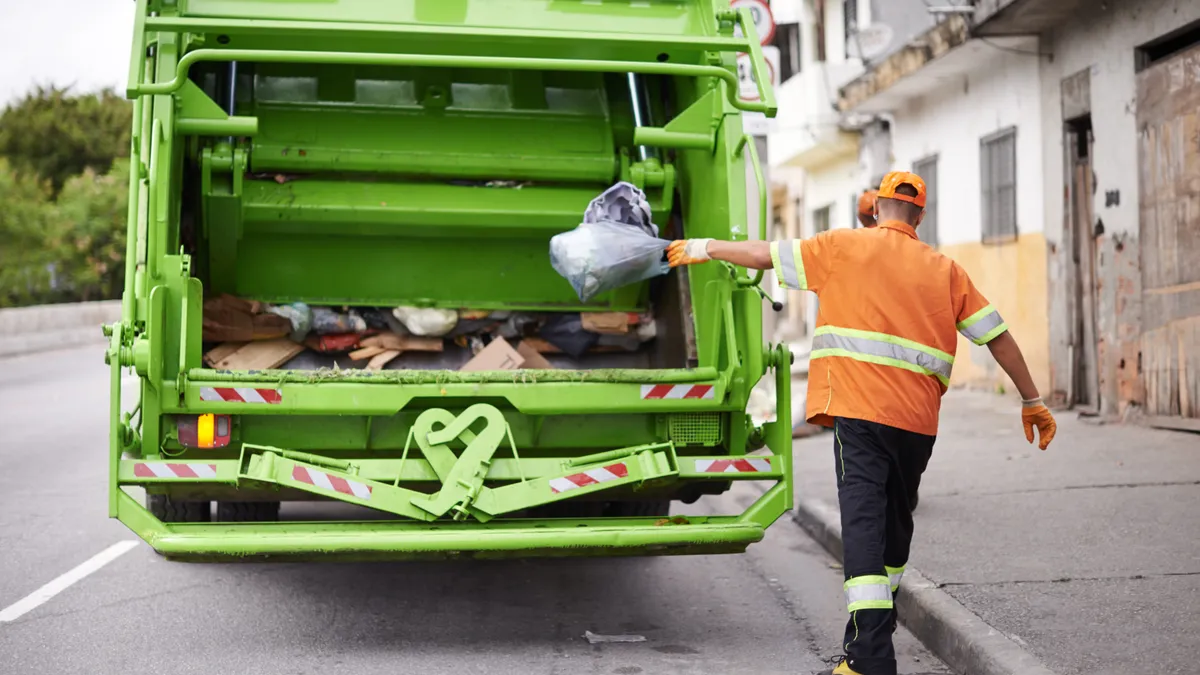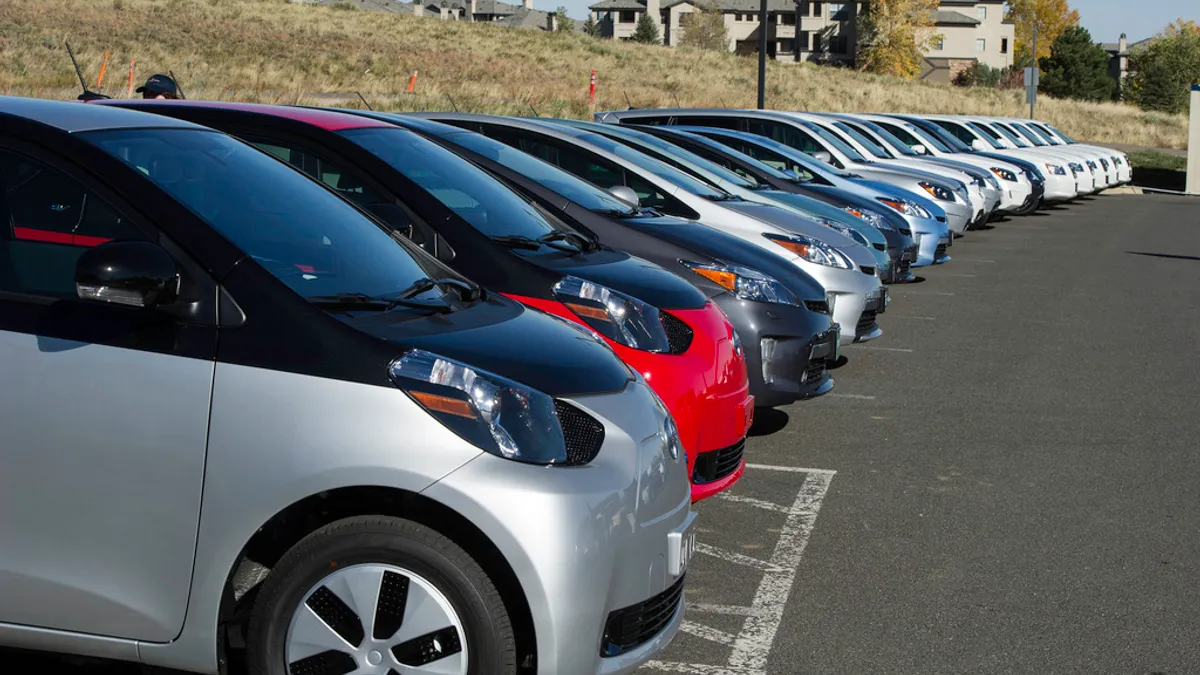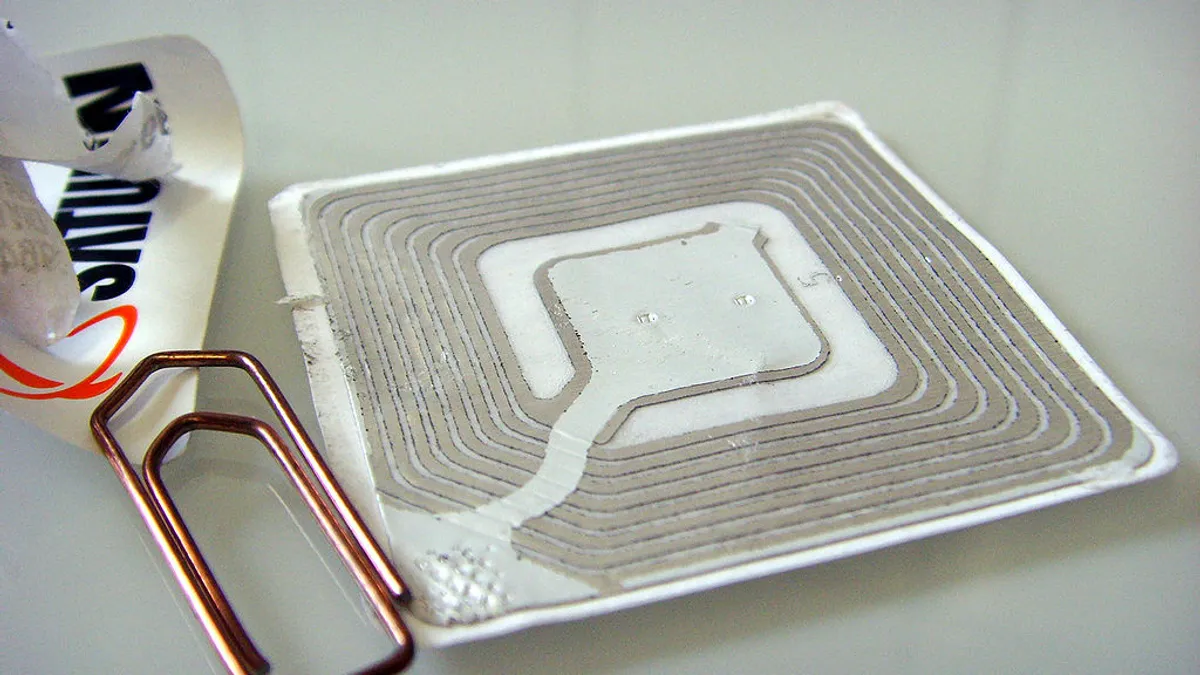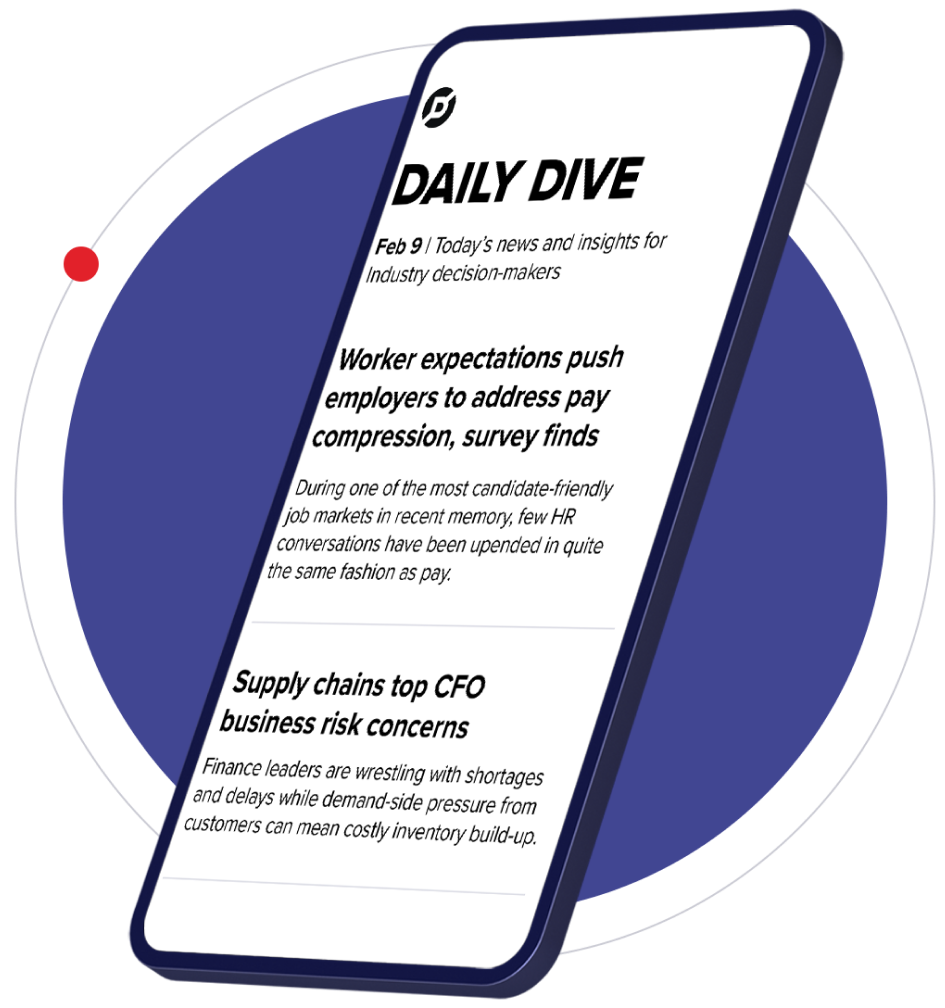Opinion: Page 12
The latest opinion pieces by industry thought leaders
If you are interested in having your voice heard on Smart Cities Dive's Opinion page, please read our editorial guidelines and fill out the submission form here.
-
Why a shared digital infrastructure is crucial for smart cities
As the world urbanizes and cities serve an increasing number of people, the importance of well-designed and robust infrastructure rises as well.
Hanan Markovich • Nov. 29, 2017 -
Amid tech enthusiasm, we may miss an opportunity to humanize smart cities
Watching the enthusiasm around Bill Gates’ smart city plans, I couldn’t help but wonder: Is the way we’re talking about smart cities somehow putting our efforts at risk?
Susanne Seitinger • Nov. 27, 2017 -
When building a smart city, start with intersections
A connected traffic intersection not only creates a powerful foundation to build upon, but also provides immediate and positive citizen impact.
Kurtis McBride • Nov. 20, 2017 -
Turning the promise of solar landfills into reality
Soltage CEO Jesse Grossman makes the case for more states to follow the leads of Massachusetts, New York and New Jersey by incentivizing energy development on closed landfills.
Jesse Grossman • Nov. 20, 2017 -
Solving transportation issues with IIoT technologies
Cities are leveraging smart connected assets and sophisticated data platforms to help alleviate transportation bottlenecks.
Neil Strother • Nov. 16, 2017 -
Overlooking risk until it's too late is no longer an option
Being proactive in the ways we plan our cities is a battle against inertia. Fixing problems might be too expensive, politically trying or emotionally taxing.
Johanna Hoffman • Nov. 13, 2017 -
Show me the money: How to fund connected transportation projects
As more cities look to roll out smart transportation pilots, state and local governments always face one big question: How do we pay for this?
Kyle Connor • Nov. 8, 2017 -
Empowering cities by rethinking wireless networks
The rapidly expanding implementation of smart architecture and infrastructure is shaping the functionality and future of the smart grid.
Keith Teichmann • Nov. 6, 2017 -
How collaboration facilitates smarter communities
When it comes to improving communities, electric companies, state utility regulators, consumer advocates and leaders are up against similar challenges — and working toward similar goals.
Katrina McMurrian • Oct. 30, 2017 -
Improving city air quality with hyperlocal data from smart sensor networks
Combined with a new generation of low-cost sensors, the hyperlocal data needed to widen the adoption of innovations could soon be a reality.
Keith Day • Oct. 24, 2017 -
Automated robots are the key to utility infrastructure management
The real goal is complete autonomy; the removal of human intervention. This is where the true cost savings will materialize.
Michael Hartnack • Oct. 9, 2017 -
Cities that are leading in connected transportation — and what others can learn from them
As long as local officials can prioritize initiatives, overcome fear of failure and embrace broad scale deployments, they will be able to enjoy more efficient public transportation systems.
Barry Einsig • Sept. 25, 2017 -
Developing the systems that will safely unlock automation
With automated vehicles that are expected to transport us and our families safely to work, school and activities, minimum viability will require a great deal more effort to achieve.
Sam Abuelsamid • Sept. 25, 2017 -
On infrastructure investment, don't miss the forest for the trees
All parties must agree on a smart vision for the 21st century that features critical energy infrastructure — including district energy, CHP and microgrids.
Rob Thornton • Sept. 20, 2017 -
All governments should be built on a unified API
Today, we’re in a place where most city departments have a website that allows citizens to carry out certain activities online — but most of those systems don’t talk to each other.
Alex Pedenko • Sept. 18, 2017 -
The evolution of smart tech: What will our cities look like in 2025?
Companies participating in the on-demand ecosystem will need to evaluate the platforms their technologies are powered by to ensure they can withstand our demand-driven world.
Roei Ganzarski • Sept. 12, 2017 -
There's a flying car in your future
Flying cars are now more viable than ever — just in time to become a new transportation option for smart cities and rural areas alike.
Kaushik Rajashekara • Sept. 6, 2017 -
Key trends in air quality monitoring and management
The growth of urban air pollution is one of the most serious indicators of the impact of global urbanization on the environment and human health.
Ryan Citron • Sept. 6, 2017 -
DOE grid study will shift and accelerate energy regulatory initiatives
R Street Institute's Devin Hartman analyzes the DOE's grid study's impact on regulatory agencies and nationwide energy initatives.
Devin Hartman • Aug. 31, 2017 -
How garbage trucks could become the eyes and ears of cities
Truly smart cities reinforce, don’t replace, existing infrastructure.
Michael Allegretti • Aug. 28, 2017 -
Why digital work hubs are the key to citywide collaboration
Like today’s modern enterprises, cities need to adapt to technological changes and create new and more efficient methods for getting work done.
Leif Hartwig • Aug. 21, 2017 -
Why ubiquitous broadband and green ICT go hand-in-hand
Broadband is simply a fat pipe. It’s how we use broadband – the applications, solutions and services that ride on it – that can contribute to smart and sustainable communities.
Charles Despins • Aug. 15, 2017 -
The decades-long evolution of the connected vehicle
What’s been going on between the initial introduction of the connected car and where we're headed in the future?
Kamyar Moinzadeh • Aug. 10, 2017 -
A cheap, clean way to split water could bring the end of fossil fuels
Adoption of hydrogen fuel would allow cities to plan future expansions or renovations to their landscape with hydrogen fueling stations or structures for production.
Megan Ray Nichols • July 20, 2017 -
How high-tech tracking systems used by airlines can cut grocery food waste
RFID tags have been used for years to track clothing inventories and luggage — and, according to Avery Dennison's Francisco Melo, have led to a 20% reduction in items stores discard.
Francisco Melo • July 14, 2017
To find more content, use the "Topics" in the menu above.



